Happy Wednesday! Reddit is back to moving markets. This time, instead of pumping up GameStop’s price, users have zeroed in on Kohl’s. The retailer closed Tuesday up 38 percent in the internet’s latest get-rich-quick scheme. Smart investment? Probably not. Will this boost the value of your Kohl’s cash? Possibly. But meme stock investors have already moved on to Krispy Kreme equity, so get ready to leverage some options to pay for as many boxes of donuts as you can get your hands on.
Quick Hits: Today’s Top Stories
- Ukrainian President Volodymyr Zelensky on Tuesday signed into law a bill that gives the prosecutor general he appointed more power over two anti-corruption agencies, a measure critics have warned could undermine the watchdogs’ independence. The government also conducted raids on the anti-corruption agencies on Monday, alleging Russian infiltration. The moves prompted more than 1,000 people to protest outside the president’s office, marking the first major demonstration against Zelensky’s government since the start of Russia’s invasion in February 2022.
- Israeli, U.S., and Syrian officials will meet Thursday to discuss the conflict in southern Syria, Axios reported Tuesday. U.S. Syria envoy Tom Barrack is expected to lead the meeting, which will be the first time the parties have met since fighting broke out last week. Israel became involved in the fighting after striking tanks in southern Syria, promising to protect the Druze religious minority. The Druze have been in conflict with the Sunni Bedouin tribes, which, according to eyewitnesses, have received support from government soldiers in their attacks on Druze civilians and fighters alike. According to a report Tuesday by CNN, a Syrian American man was among the Druze victims of an execution-style killing. The meeting reportedly will focus on increasing coordination between Syria and Israel to prevent further tension.
- House Speaker Mike Johnson said Tuesday that he plans to send members home a day early for the House’s five-week August recess in order to avoid holding votes on releasing the Jeffrey Epstein files. Johnson said he wanted to provide “space” for President Donald Trump to determine how to proceed with publishing the files, but as Democrats have tried to force a vote on the issue, more Republicans are now calling for the Justice Department’s information on Epstein to be made public. On Tuesday, a committee spokesperson for the House Oversight Committee said that it had plans to subpoena Epstein’s associate Ghislaine Maxwell, who is serving a prison sentence for child sex trafficking, “as expeditiously as possible.” Deputy Attorney General Todd Blanche said Tuesday that he had been in communication with Maxwell’s counsel to request a meeting with the Epstein co-conspirator.
- President Trump said Tuesday night his administration had reached an agreement on a trade framework with Japan that would place a 15 percent tax on goods imported from the country. “I just signed the largest trade deal in history; I think maybe the largest deal in history with Japan,” Trump said at a reception with congressional Republicans. “They had their top people here, and we worked on it long and hard. And it’s a great deal for everybody.” Trump had threatened to impose a 25 percent tariff on Japanese goods on August 1.
- Also on Tuesday, Trump announced a trade agreement with the Philippines, setting tariffs on imports from the country at 19 percent. The rate is lower than the 20 percent rate originally threatened, but higher than the 17 percent levy set in April. Trump said on Truth Social that he had a “beautiful visit” with Philippine President Ferdinand Marcos Jr. and that the country would not impose a tariff on U.S. goods. According to the White House, Indonesia also plans to lift non-tariff trade barriers on the U.S. and purchase American oil, gas, airplanes, and farm products.
- A federal appeals court ruled Tuesday that the White House could exclude the Associated Press from the rotating press pool while the legal fight between the AP and the Trump administration continues. The White House previously blocked the AP from participating in the press pool after the news agency declined to change the name of the Gulf of Mexico to the Gulf of America in its style guide after Trump signed an executive order declaring the name change. The court’s one-page order comes after the administration removed the Wall Street Journal from its pool of reporters covering Trump’s trip to Scotland. The decision came after the paper published a story alleging that Trump sent a sexually suggestive letter to Jeffrey Epstein in 2003. Trump has filed a lawsuit against the newspaper over the story.
- President Trump continued his criticism of Federal Reserve chairman Jerome Powell on Tuesday, but he reiterated that he would not fire the Fed chair. “I think he’s done a bad job, but he’s going to be out pretty soon anyway,” Trump told reporters. “Eight months, he’ll be out.” Powell’s term runs until mid-May, almost 10 months from now. Despite suggesting that Powell would not be removed, Trump maintained that the central bank should cut interest rates. Treasury Secretary Scott Bessent, who has been critical of the Fed in recent days, also said Tuesday that he does not believe that Powell needs to resign, although he continued his calls for a review of the Fed’s operations.
A message from The College Fix
This is what happens when you skip The College Fix.
😭 Don’t be that guy.
📰 Get the stories the mainstream media won’t touch.
🎓 Real news. Campus watchdogs. Future journalists.
Japan’s YouTube Politics
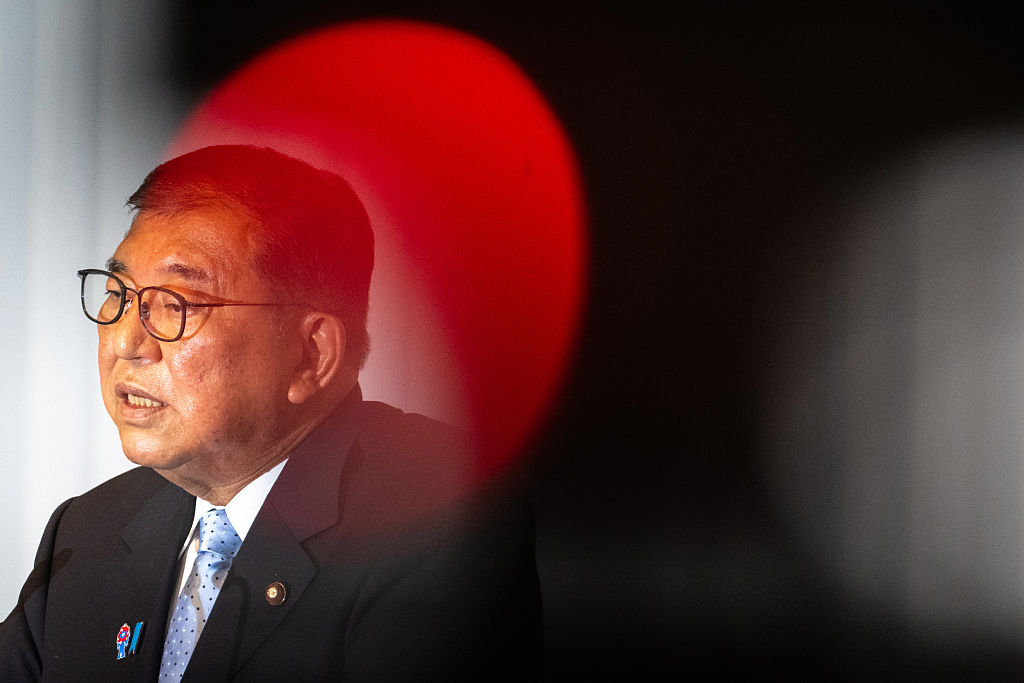
Japan’s center-right Liberal Democratic Party (LDP) is one of the most successful political parties in the world. Since its founding in 1955, it has been out of power for just over four years. But the results of Sunday’s election threaten to add to that minuscule tally.
As the votes for Japan’s upper house, the House of Councillors, rolled in Sunday, the LDP prepared to enter into the minority and an uncertain future. The election marked the third in a string of recent electoral defeats for the party, after it lost its lower house majority in October and the Tokyo Metropolitan Assembly election in June.
With 47 seats, the LDP and its junior partner, the Komeito party, fell short of the 50 it needed to win in order to keep control of the 248-seat House of Councillors. It will now attempt to govern as a minority party in both houses, a first in modern Japanese history. The defeat came at the hands of a novelty in usually buttoned-up Japanese politics: the rise of populist parties, which capitalized on widespread anger at the cost of living and discontent with immigration.
As a non-paying reader, you are receiving a truncated version of The Morning Dispatch. You can read our full item on XYZ in the members-only version of TMD.
Two small populist parties dramatically increased their number of seats in the upper house: The Democratic Party for the People (DPFP) went from five to 22 seats, and Sanseito (“Participate in Politics”) went from a single seat to 15. Their gains seem to have come almost entirely at the expense of the LDP, with the main opposition party, the Constitutional Democrats, merely holding steady at 38 seats.
Both of the emerging parties are led by charismatic political celebrities with large online followings. The DPFP’s leader, Yuichiro Tamaki, refers to himself as “neither left nor right,” and campaigned on a slogan that rivals “the rent is too damn high” in its bluntness: “Increase take-home pay.” At 56 years old, Tamaki is young compared to the leaders of the main parties, who are both 68. He frequently criticizes the “silver democracy” of Japan, where seniors, at 30 percent of the population, are the most powerful voting bloc.
Tamaki, however, is the relative moderate. Sanseito’s leader, Sohei Kamiya, started his party in 2020, shortly after launching a YouTube channel which gained traction for spreading conspiracy theories about vaccinations and “Jewish capital.” He has positioned himself as the loudest critic of Ishiba from the right.
Kamiya gained momentum in the last few weeks of the campaign by loudly criticizing foreigners, whether they be guest workers from Korea and the Philippines or boorish Americans, for allegedly taking advantage of Japanese citizens while disrespecting their culture and customs (one wonders if he had a certain State Department official in mind). More combative than Tamaki, his slogan was “Japanese First!”
Younger voters flocked to both parties. According to an exit poll by Kyodo News, roughly half of voters under 40 cast a ballot for either the DPFP or Sanseito, even as both parties combined for around 28 percent of the overall vote. Younger people are especially angered by Japan’s weak wage growth, which has lagged behind inflation, and the rising price of rice, a metric that possesses enormous symbolic significance in Japanese politics.
Tamaki appealed to these voters by calling them “forgotten people,” advocating for cutting the consumption tax, an important source of government revenue, and for spending more on the young with “education bonds.” Kamiya took a more aggressive attack, accusing immigrants of taking away jobs from young Japanese people. While it’s true that previous leaders increased immigration quotas to address labor shortages, the foreign-born population of the country is still only 3 percent, far below most developed economies.
For Kamiya and his supporters, however, even 3 percent is too much. Sanseito campaigned on excluding non-Japanese residents from welfare and cracking down on illegal immigration. Globalization is the “reason behind Japan’s poverty,” Kamiya has claimed.
But while the party’s anti-immigrant stance and avowedly Trumpian style have garnered much of the attention from foreign press, experts who spoke to TMD cautioned against viewing the election as a referendum on migration. Immigration wasn’t close to the top issue for the general public, almost half of whom cited either rising prices or public welfare as the biggest factor in how they would vote in a poll from early July. Ishiba and his Cabinet’s approval rating also stands at 23 percent, indicating that at least some voters saw their choice of a third party as more of a vote against an unpopular incumbent than for a specific program.
New parties “can capitalize on this sense of malaise, fatigue, disillusionment with mainstream politics,” John Nilsson-Wright, a professor of modern Japanese politics at the University of Cambridge, told TMD. But it remains to be seen whether the upstarts can become established players in their own right, he argued.
After all, both the DPFP and Sanseito remain minnows compared to the wounded leviathan of the LDP, still the largest party in the House of Councillors by a wide margin. Unless he loses a vote of no confidence, Ishiba can still continue in his current post. “That’s right,” he said Sunday, when asked at a press conference if he intended to remain prime minister. It’s possible for Ishiba to keep his position and govern from the minority, provided that he’s willing to scramble for compromises with other parties.
Keeping other parties on board would be difficult, but not impossible. “The key issue is whether the opposition would be minded to support a no-confidence vote,” said Nilsson-Wright. But Ishiba has shown that he’s capable of cobbling together the votes for a majority on an issue-by-issue basis, Nilsson-Wright pointed out. Japan’s latest budget, passed in March, was the product of Ishiba negotiating with smaller parties for their votes, including by delaying a planned increase in a cap on medical expenses.
Ishiba’s political fortunes got a major boost late Tuesday night, when President Donald Trump announced the U.S. and Japan had agreed on a framework for a trade deal. “I just signed the largest trade deal in history; I think maybe the largest deal in history with Japan,” Trump said at a reception with congressional Republicans. “They had their top people here, and we worked on it long and hard. And it’s a great deal for everybody.”
The deal will place a 15 percent tax on goods imported from Japan, and the country will invest $550 million into the United States and open its markets to American goods like cars and rice, according to Trump. Crucially for Japan, the deal also will set tariffs on its auto exports, which are subject to a separate tariff schedule, at 15 percent. It will give Japanese carmakers an edge over those in other countries, which have faced an additional 25 percent tariff since April.
Japan had been facing an August 1 deadline that would have triggered a 25 percent tariff on its imports, and little progress toward a deal had seemingly been made, even after six separate visits to Washington by Akazawa Ryosei, the country’s minister of economic revitalization. For his part, Ishiba viewed the negotiations as “a battle for our national interest. We will not be taken lightly.”
The agreement will undoubtedly help Ishiba in his bid to retain power, but voices within the LDP have begun to call on him to take responsibility for the electoral defeat. “The prime minister and secretary-general both say the party is still the largest party. But instead of puffing our chests, we should be accepting the heavy truth that we couldn’t achieve the goal of reaching a majority,” Farm Minister Shinjirō Koizumi said Tuesday.
An all-party meeting is slated to be held in the coming weeks to discuss the election results. As Ishiba tries to hold on to his job, his rivals—both inside and outside his party—are circling.
One of those rivals, Tamaki, certainly thinks that the LDP’s days in power are numbered. “In corporate terms, losing all three—the Lower House election, the Tokyo Metropolitan Assembly election and the Upper House election—is like being in the red for three quarters straight,” he declared on Monday. “It is unthinkable for no one to take responsibility.”
Today’s Must-Read
The morning after Speaker Mike Johnson won the gavel and took the reins of the House of Representatives in October 2023, the Louisiana Republican found himself in a new office in the Capitol, attempting furiously to get up to speed. … Barely 24 hours on the job in his sparsely appointed office, he reviewed documents and fielded a long line of visitors—mostly House Republicans asking for favors—when one of them, Rep. Byron Donalds of Florida, came bearing advice. “One of the people that came in was Byron Donalds who is a good, close friend and ally and he came in and said: ‘You need to go to Las Vegas.’ And I laughed, and thought it was a joke, and he said: ‘No, RJC is meeting right now, it would be such a big, impactful thing.’”
Toeing the Company Line
Freeing Ghislaine Maxwell
A postmodern cover-up.
Google Search’s AI Transformation, Explained
While the search giant touts its shift to AI, not all users and publishers welcome the changes.
Colbert’s Demise Marks the End of an Era
The old late-night model doesn’t work in a balkanized culture.
Across the Pond Politics | Interview: Francis Dearnley
‘Demography is not destiny.’
Worth Your Time
As the AI race between China and the U.S. continues to ramp up, the Trump administration may have handed China a significant win, according to a piece by Sam Winter-Levy and Alasdair Phillips-Robins in Foreign Policy. “Last week, U.S. chip designer Nvidia announced that it would resume sales of one of its best-selling artificial intelligence chips to China after obtaining the go-ahead from the U.S. government. In April, the Trump administration had blocked exports of the chip, known as the H20, but after months of lobbying from Nvidia CEO Jensen Huang, it has reportedly agreed to lift the ban. Some Trump officials have described the move as a part of the recent trade truce between the United States and China, through which China agreed to resume exports of rare-earth minerals. Beijing has described it as a unilateral concession by Washington. Whatever the true sequence of events, the move has huge implications for both the future of the Chinese artificial intelligence (AI) industry and the Trump administration’s ability to control advanced technology sales to China in the future,” the authors wrote. “Right as powerful AI reasoning systems are emerging, the administration has chosen to allow companies to sell China the AI chips suited to running them. And by linking, at least rhetorically, chip sales to the trade talks—talks in which the United States has shown a striking desperation to reach a deal—U.S. officials have revealed to their Chinese counterparts that national security policies that were once off the table are now up for negotiation. In doing so, they may have hamstrung their ability to impose new chip export controls without reigniting a losing trade war.”
Presented Without Comment
New York Times: U.S. Says It Will Withdraw From U.N. Cultural Organization, Again
The United States said Tuesday it would withdraw from UNESCO, the United Nations cultural agency, the latest move by the Trump administration to cut ties with international organizations.
…
“Continued involvement in UNESCO is not in the national interest of the United States,” Tammy Bruce, a State Department spokeswoman, said in a statement.
Ms. Bruce accused UNESCO of promoting “divisive social and cultural causes” and maintaining an “outsized focus on the U.N.’s Sustainable Development Goals, a globalist, ideological agenda” at odds “with our America First foreign policy.”
Also Presented Without Comment
Bloomberg: SpaceX Warns Investors Elon Musk Could Return to U.S. Politics
In the Zeitgeist
“Prince of Darkness” Ozzy Osbourne, the heavy metal pioneer and Black Sabbath frontman, died Tuesday after a battle with Parkinson’s disease. Earlier this month, Osbourne performed his final show at a concert featuring bands like Metallica, Slayer, and Alice in Chains to celebrate the artist’s prolific career. Here’s a 1970 recording from Osbourne performing “War Pigs.”
Let Us Know
What’s your favorite Black Sabbath song?

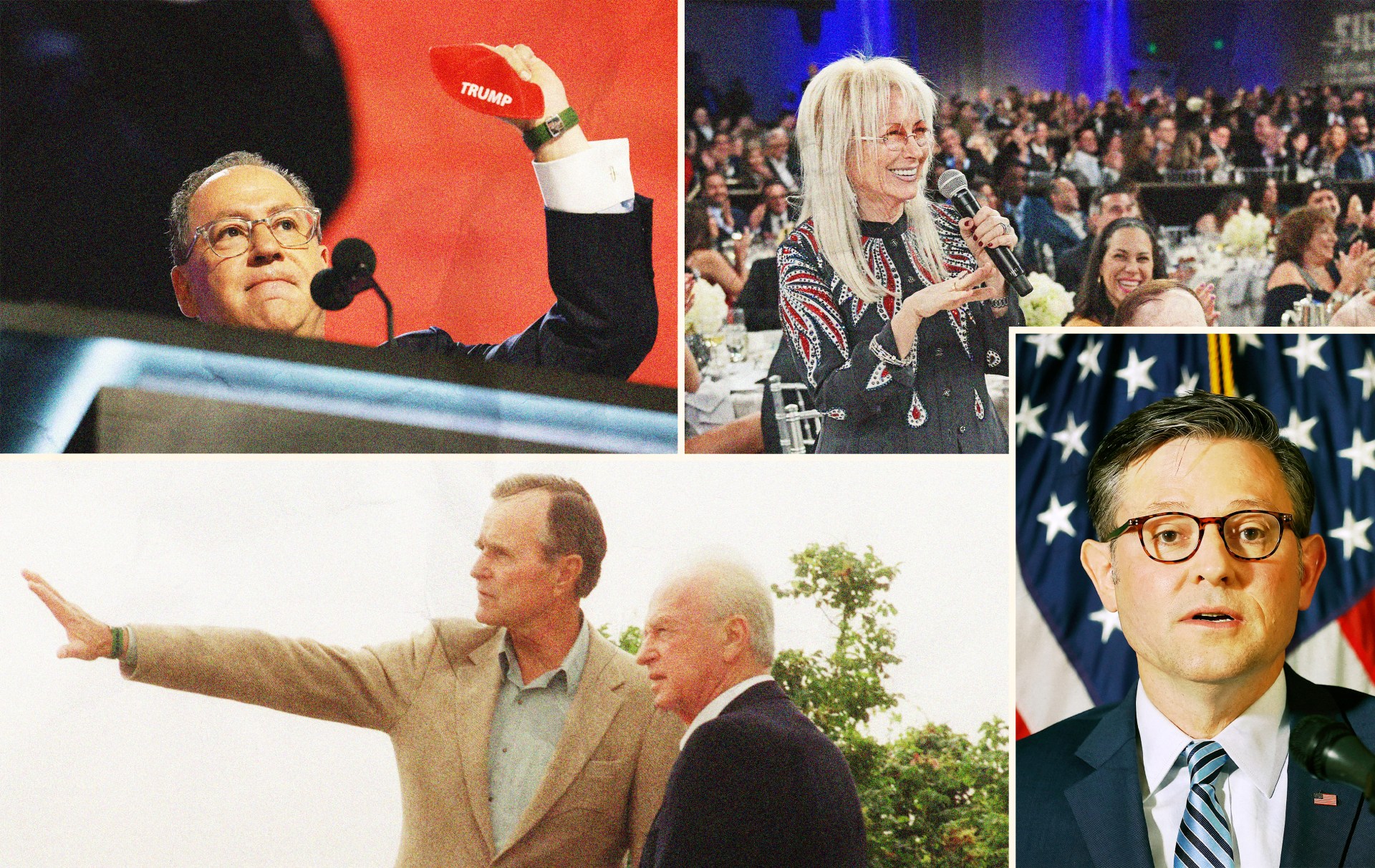
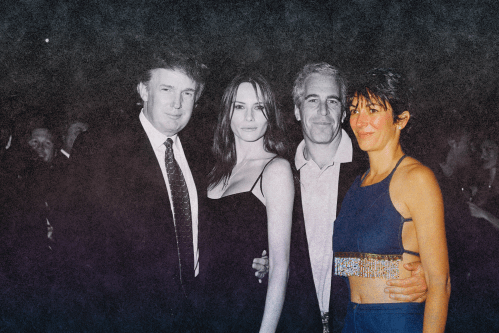
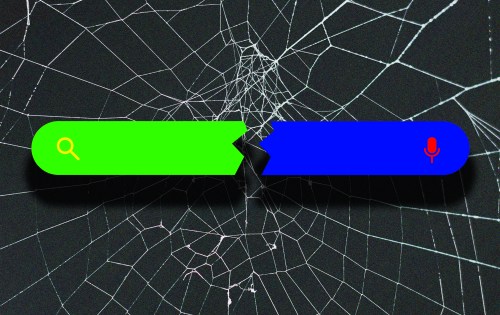
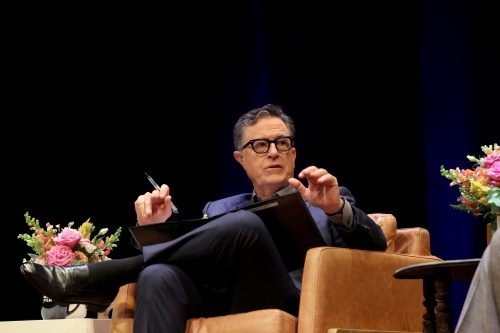
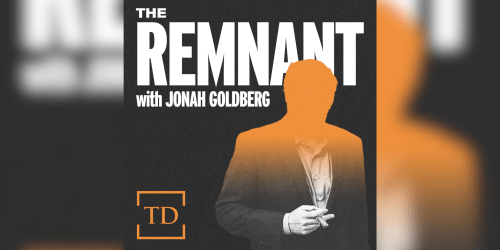





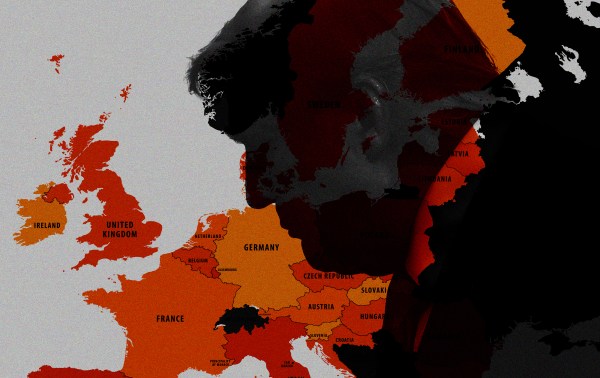
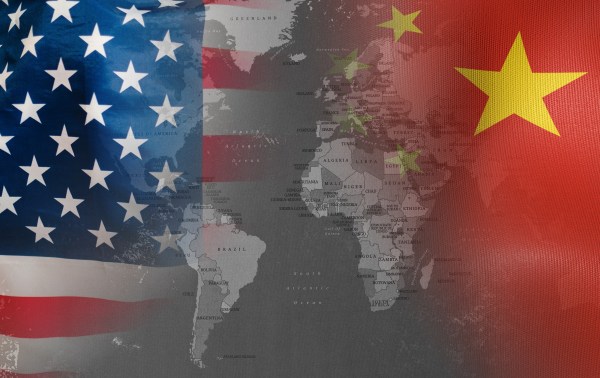

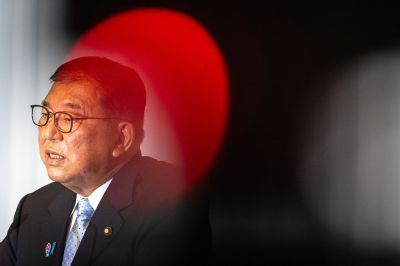
Please note that we at The Dispatch hold ourselves, our work, and our commenters to a higher standard than other places on the internet. We welcome comments that foster genuine debate or discussion—including comments critical of us or our work—but responses that include ad hominem attacks on fellow Dispatch members or are intended to stoke fear and anger may be moderated.
With your membership, you only have the ability to comment on The Morning Dispatch articles. Consider upgrading to join the conversation everywhere.